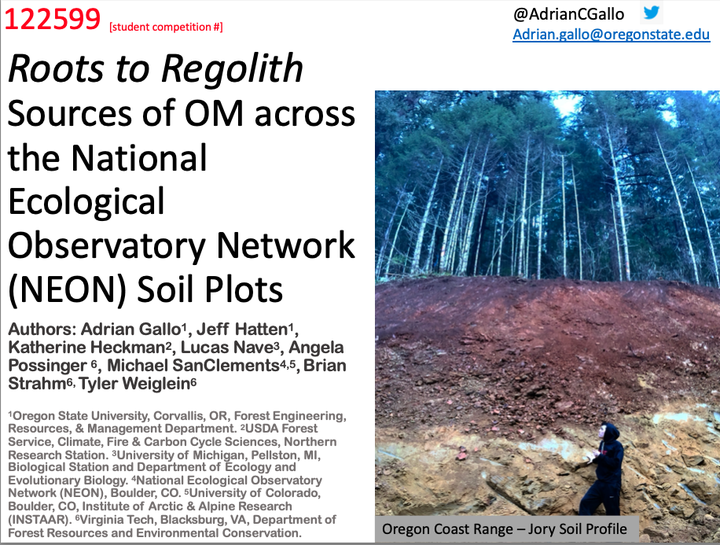Roots to Regolith: Sources of organic matter across the National Ecological Observatory Network (NEON) soil plots

Abstract
The National Ecological Observatory Network (NEON) is embarking on a 30-year continuous measurement endeavor and understanding what soils are present can help to inform all related fields explain patterns and processes moving forward. The majority of soils experiments only collect samples down to 30cm; however, we know soil profiles to be much deeper where a substantial amount of the carbon is stored. Our objective is to connect the deep horizon geochemistry characteristics to similar or less time-intensive observations of the surface soils. Using soil cores, up to 2m depth, from the NEON Soil Plots we composited by genetic horizon and focused analytical measurements on the A-horizon, upper B, and lower B-horizon to obtain a gradient of pedologic processes from the litter layer to parent material. Using density fractionation and the copper oxidation method we are able to determine (1) the relative contribution of plants and microbes to the soil organic matter (OM) pools and (2) source the OM from dominantly root vs shoot-type carbon. Based on the OM characteristics of the surface horizons we hope to better understand deeper horizon geochemistry processes than can help to inform future NEON studies, as well as other soils studies with only surface horizon data available. Results are forthcoming.
TLDR
This presentation, focusing on the NEON collaboration, is the culmination of two-thirds of my dissertation. Not all the data were available (PSA: don’t extract lipids in plastic falcon tubes because plasticizers screw up the GC-MS signal) but we had a significant portion of across ecosystem & down soil profile information that we could produce a reasonable story. One that runs contrary to some research on where soil carbon comes from and how long it may stick around.
You can download the original presentation PDF. Or, if you can watch the recorded video through the Soil Science Society of America conference website.